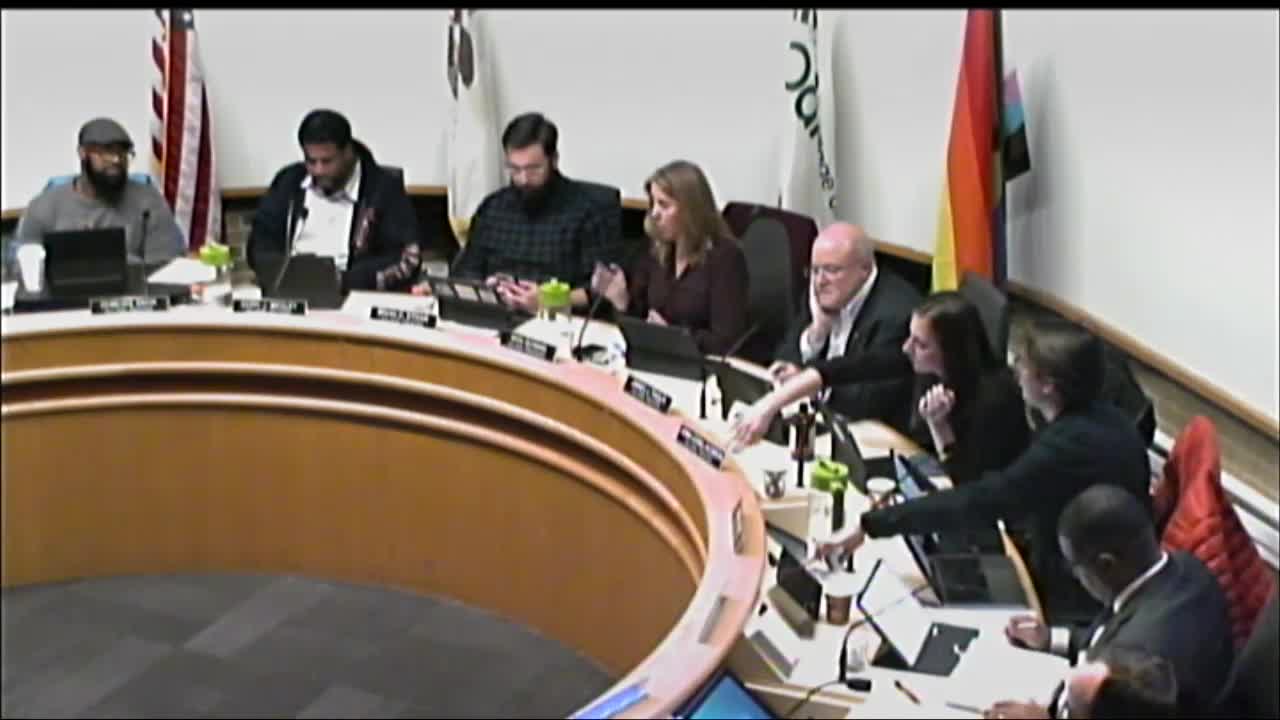Oak Park board directs staff to draft policies, communications to limit use of village property for immigration enforcement
Get AI-powered insights, summaries, and transcripts
Subscribe
Summary
Trustees asked staff to prepare ordinance language and a village-wide communications plan modeled on recent Chicago and Evanston actions, to prohibit use of village property for federal immigration enforcement and to equip residents and businesses with 'what to do' guidance. Staff reported immediate steps already taken and said legal review and an
The Village Board on Oct. 21 directed staff to pursue a two-part response to recent federal immigration-enforcement activity affecting Oak Park: (1) draft ordinance language (and related policies) to limit or prohibit the use of village property for civil immigration enforcement operations; and (2) build a coordinated village-wide communications plan so residents, businesses and other taxing bodies know how to respond if federal agents are present.
Trustees Derek Eder and Jenna Levin Jacobson introduced a memorandum asking staff to prepare language modeled on Chicago’s Oct. 6 executive order and Evanston’s Oct. 13 resolution. The requested ordinance would: prohibit use of village-owned property for immigration enforcement staging, processing, or operations; authorize placement of physical barriers (for example locked gates) to limit access to village properties; and encourage coordination with other local taxing bodies (township, library, school districts, park district) to adopt similar policies.
Trustees also asked staff to develop a village-wide communications playbook that would make clear, concise steps any resident or business can take if they observe federal agents. Suggested components include standardized signage businesses can display ("We protect all workers," "ICE-free zone" or similar), handouts, digital templates for the village newsletter and emergency notification systems, targeted outreach to employers who hire day laborers, and connections to trusted legal and community partners such as PASO, West Suburban Action Project and ISER (the Illinois Coalition for Immigrant and Refugee Rights).
Village Manager Kevin Jackson reported staff had already taken short-term steps: restricting Village Hall parking to village business to deter use as a staging area; expanding an immigration resources page on the village website (adding roughly 50 links and FAQ content); issuing news releases affirming Oak Park's "welcoming" policy; adding a website slider and front-page prominence linking to resources; and printing 10,000 bilingual 5x7 flyers for distribution. Communications staff also gave trustees an initial packet and offered to coordinate signage and materials.
Staff told the board they were conducting a legal and operational analysis of the proposed ordinance language and that, if the board wanted action before the next regular meeting (Nov. 11), the village could schedule a special meeting (noting committee calendars and the budget timetable). The manager said Nov. 4 (a finance-committee night) could be used if the board wanted earlier consideration.
Trustees and public commenters stressed the need for concise, actionable public guidance for residents at the moment they observe federal officers (instructions such as "note vehicle and agent descriptions, take horizontal video, record names, get cross-streets/address, call legal hotlines"). Acting public-safety and community partners in the meeting stressed that simple, widely distributed instructions would be more effective than long lists of links. Several trustees also emphasized coordination with other taxing bodies would be important because many public properties in Oak Park (schools, parks, library) are owned by separate authorities.
Public and trustee comment provided a specific resource: ISER's Family Support Network hotline (855-435-7693), which trustees and staff cited as a resource to include in communications. No ordinance was adopted at the meeting; staff will return with draft language and an operational plan, including costs for signage and printed materials, and options for coordinating with other Oak Park taxing bodies.
Speakers and participants included Trustees Jenna Levin Jacobson and Derek Eder (authors of the draft memo), Village Manager Kevin Jackson, Communications staff, and community members and organizers who urged swift action. Staff noted that legal review and intergovernmental coordination are required steps before board adoption of an ordinance.
Practical guidance distributed during the meeting emphasized four actions residents can take when they observe federal immigration activity: (1) note location (cross streets or address); (2) record horizontal video and narrate actions, vehicle plates and agent descriptions if it is safe to do so; (3) collect contact information for the detained individual if possible; and (4) call a trusted legal hotline (ISER Family Support Network: 855-435-7693).
